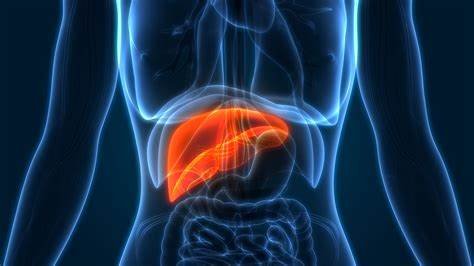SCG Cell Therapy's SCG101 Shows Promising Results in First-in-Human Trial for Advanced HBV-related Hepatocellular Carcinoma at AASLD Liver Meeting 2023
14 November 2023 | Tuesday | News

Image Source : Public Domain
Results from a first-in-human clinical trial showed that SCG101 demonstrated promising antiviral and antitumor activities in patients with advanced HBV-related hepatocellular carcinoma (HCC). In six patients with advanced HBV-HCC who received a single IV dose of SCG101 at 5.0×107 ~ 1.0×108 TCR+ T cells/kg, 2 out of 6 (33%) patients achieved partial responses (PR) and 2 of 6 patients had stable diseases (SD) with tumor reduction observed.
The tumor responses were highly correlated with the antiviral activities of SCG101. As of the data cutoff, 6 out 6 (100%) patients experienced serum HBsAg reduction and 4 out of 6 (67%) achieved reduction of 1~3 log after SCG101 infusion. The HBsAg level maintained ≤20 IU/mL throughout the follow up period for up to 90 weeks. Tumor reduction was observed in all 4 patients with serum HBsAg reduction >1 log, and the median progression free survival (PFS) was prolonged (25.8 versus 3.1 weeks) in patients with HBsAg reduction >1 log than in those without.
The safety analysis revealed that SCG101 was generally well tolerated with no cases of serious adverse events or immune effector cell-associated neurotoxicity syndrome. The most common treatment-related adverse events were transient liver enzymes evaluation, cytokine release syndrome (CRS), and fever, which were expected due to SCG101's mechanism of diseased hepatocytes clearance and immune activation.
HBV infection is a leading cause of liver cancer and accounts for 50%-80% of hepatocellular carcinoma cases worldwide.[1] HBV DNA integrates into the host genome and leads to genetic instability of the host cell and epigenetic remodelling of host DNA, resulting in abnormal expression of oncogenes and HBV antigens.[2] SCG101 can specifically target an HBV peptide presented on HBV-HCC tumor cells, HBV-DNA integrated premalignant hepatocytes, and HBV-infected cells, triggering cytolytic and non-cytolytic mechanisms to eliminate tumor cells and HBV-infected cells.
"We are excited to be the first to demonstrate the potential of HBV TCR T cell therapy to achieve promising tumor responses in solid tumors and induce durable antiviral activities. This unique dual function of SCG101 offers a new approach to treating HBV-associated HCC by targeting the underlying cause of cancer", said Frank Wang, Chief Executive Officer of SCG Cell Therapy. "We believe our GianTTM TCR discovery platform has the potential to tackle a wide range of infection-associated cancers, such as Epstein-Barr Virus (EBV), Human Papillomavirus (HPV), and ultimately establish a new paradigm in immune cancer treatment".
Most Read
- How Does GLP-1 Work?
- Innovations In Magnetic Resonance Imaging Introduced By United Imaging
- Management of Relapsed/Refractory Multiple Myeloma
- 2025 Drug Approvals, Decoded: What Every Biopharma Leader Needs to Know
- BioPharma Manufacturing Resilience: Lessons From Capacity Expansion and Supply Chain Resets from 2025
- APAC Biopharma Review 2025: Innovation, Investment, and Influence on the Global Stage
- Top 25 Biotech Innovations Redefining Health And Planet In 2025
- The New AI Gold Rush: Western Pharma’s Billion-Dollar Bet on Chinese Biotech
- Single-Use Systems Are Rewiring Biopharma Manufacturing
- The State of Biotech and Life Science Jobs in Asia Pacific – 2025
- Asia-Pacific Leads the Charge: Latest Global BioSupplier Technologies of 2025
- Invisible Threats, Visible Risks: How the Nitrosamine Crisis Reshaped Asia’s Pharmaceutical Quality Landscape
Bio Jobs
- Sanofi Turns The Page As Belén Garijo Steps In And Paul Hudson Steps Out
- Global Survey Reveals Nearly 40% of Employees Facing Fertility Challenges Consider Leaving Their Jobs
- BioMed X and AbbVie Begin Global Search for Bold Neuroscience Talent To Decode the Biology of Anhedonia
- Thermo Fisher Expands Bengaluru R&D Centre to Advance Antibody Innovation and Strengthen India’s Life Sciences Ecosystem
- Accord Plasma (Intas Group) Acquires Prothya Biosolutions to Expand Global Plasma Capabilities
- ACG Announces $200 Million Investment to Establish First U.S. Capsule Manufacturing Facility in Atlanta
- AstraZeneca Invests $4.5 Billion to Build Advanced Manufacturing Facility in Virginia, Expanding U.S. Medicine Production
News











